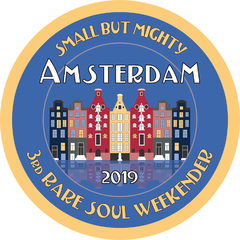- Replies 14
- Views 1.8k
- Created
- Last Reply
Most active in this topic
-
Neil Rushton 1 post
-
Ian Dewhirst 1 post
-
Amsterdam Russ 1 post
-
soulpaul0 1 post
Most Popular Posts
-
In the USA most of the record labels relied on distributors to promote their releases, especially to radio stations. The labels needed to know that if a distributor was given say 100 free "promo
-
Promos also royalty-free! Ian D
-
You beat me too the answer first Chalk's - as a time served ex label printer, that is correct as a costing exercise. Issue's are moulded mass pressed penny a thousand plastic products.





Something I've never understood is the reasoning behind record companies going to the bother of printing different label designs for a comparatively small run of records in preperation for the major run that was to follow. Why not just send out issues?
I know some companies did just that, but why did the others send out specially labeled versions?